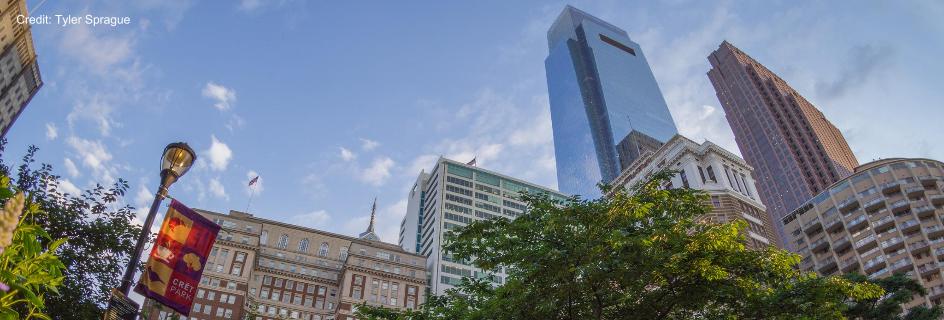- About GPA
- Global Events
- GLOBAL NEWS FROM PHL
- Global Directory
- World Heritage City
- Sustainable Development Goals (SDGs)
- Global Philadelphia Role on Sustainable Development Goals
- Completed Sustainable Development Goals
- SDG#1: No Poverty
- SDG #2: Zero Hunger
- SDG#3: Good Health & Well-Being
- SDG#4: Quality Education
- SDG#5: Gender Equality
- SDG#6: Clean Water & Sanitation
- SDG#7: Affordable and Clean Energy
- SDG #8: Decent Work and Economic Growth
- SDG #9: Industry, Innovation, and Infrastructure
- SDG#10: Reduced Inequalities
- SDG#11: Sustainable Cities and Communities
- SDG#16: Peace, Justice and Strong Institutions
- SDG#17: Partnerships for the Goals
- Press
Home ›
Stephen Tang’s A Test for Our Time: Book Review and Interview
Posted on July 2, 2023

By Enya Xiang
In times of crisis, Dr. Stephen S. Tang encourages us to lead with purpose and compassion. He recalls his experience as the CEO of OraSure Technologies Inc. in his 2023 memoir, A Test for Our Time: Crisis Leadership in the Next Normal. From 2018 to 2022, four years that squarely cover the onset and height of the Covid-19 pandemic, he oversaw the critical release of the InteliSwab Rapid Test and the expansion of the biotech firm.
Tang, a resident of Greater Philadelphia and winner of a 2021 Globy Award, celebrates his professional and personal achievements while not forgetting the obstacles and mistakes made along the way. He reminds us that the alienating, often paralyzing, nature of crises leads us towards opportunities that offer growth and collaboration. In the next crossroad that shatters all existing norms, we will be prepared to lead.
I was able to sit down with Tang and discuss his experiences and insights detailed in A Test for Our Time. “I’ve tried to better understand my life, and that’s what brought me to the book,” he explains to me.
The memoir is anchored by his Monday Motivational Messages (MMMs), a weekly newsletter that he began sending to his co-workers in April 2020, which contained reflections on work, noteworthy quotes, and charming anecdotes about everyday life. Tang writes that his email chains and messages with employees “felt more like ‘love letters’ than company newsletters,” numbering more than 240 pages.
For him, writing is “trying to digest everything in the world.” Among the many facets of life that the pandemic upset or took away, one of the most valuable was time. Tang realized that he and his employees shared a common bond of loss and longing. The MMMs “made it okay to grieve about things we were missing, like each other.”
What is striking is his call for leaders to model vulnerability—not the usual tough-it-out mentality that one imagines of a CEO. The saying, “hope is not a strategy,” is common in business and military settings, Tang remarks. Rather, he argues that “hope is the foundation of capability.” Hope is the ability to unify and empower, resisting the gravitation of crises to divide and isolate. This was an important message for OraSure employees to hear, the ones we were asking to clock in at the height of the pandemic.
For Tang, a leader must come down from the ivory tower because hope requires trust. “Leaders have a profound responsibility to serve and be of service to others,” he emphasizes. That is the essence of leading wholeheartedly: building meaningful human connections through sincerity and gaining an understanding of what truly motivates people.
“I’m an optimist about human nature,” Tang admits, “so I believe that most of us will do the right thing for the right reasons at the right times, but they need good examples. That is a leader’s responsibility.”
Tang is a second-generation Chinese immigrant like me and an ‘82 alumnus from William & Mary, where I currently study. We were able to connect through our shared alma mater and culture.
Amid the Chinese Civil War, Tang’s family came to the United States as refugees. “The pride they had of being American was something I grew up with,” he acknowledges, “but as I have gotten older it’s gotten more nuanced.”
I asked Tang about a story he mentions in his memoir, in which a seller refused to sell his grandfather a house. Following the Second World War, a Chinese neighbor who looked like the Japanese enemy was too close for comfort. Yet, Tang is determined to understand the perspective of the neighborhood. “There was more at stake for his neighbors to stick up for him than for them to be complicit in something that was discriminatory,” he says thoughtfully.
During the pandemic, incidents of anti-Asian violence and hate crimes spiked all over the country, paralleling the xenophobia of Tang’s grandfather’s war generation. Tang reflects on what it means to be American, “This is a fascinating country with many contradictions and paradoxes, and how we deal with those seemingly conflicting aspects of our society are still really important questions.”
A Test for Our Time is peppered with inspiring quotes from athletes to world leaders and colorful allusions to movies and books, such as The Martian, Alice in Wonderland, The Lego Movie, and even a famous Chinese proverb about luck. He laughs when I asked him about it, “I have a very eclectic taste in things, in literature and pop culture. I believe we can learn something from everything.”
Beneath all the quotes, anecdotes, and MMMs, his own personal story shines through. “What I learned as a leader is that storytelling is a very compelling way to get across a message,” he tells me. “People need a story to hold onto and to be a part of, to belong to.”







